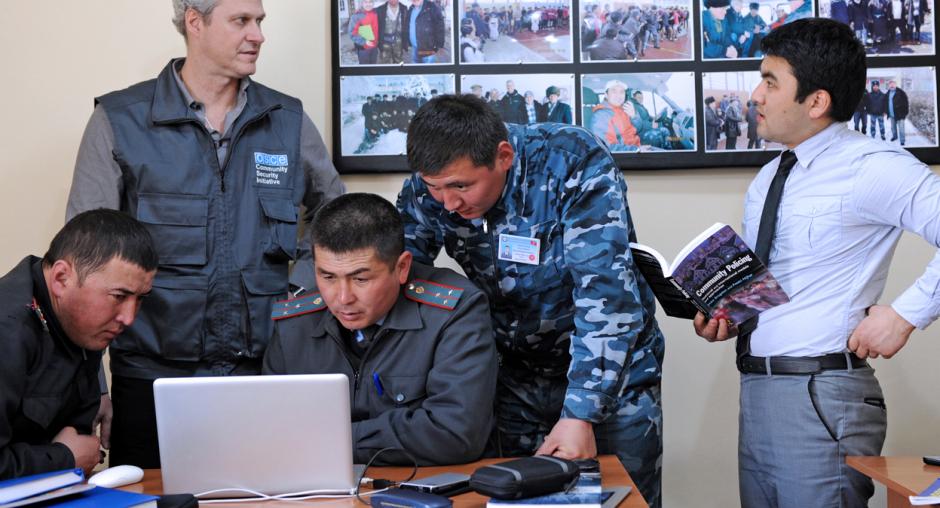OSCE concludes Community Security Initiative project in Kyrgyzstan

BISHKEK, 11 December 2015 – The closing ceremony of the OSCE’s Community Security Initiative (CSI) project took place in Bishkek today with the participation of Kyrgyz officials, donor countries and international organizations.
The CSI project aimed at supporting the country’s leadership to reduce tensions and address the root causes of the inter-ethnic conflict in southern Kyrgyzstan, which started in the summer of 2010.
Working in 15 different regions of Kyrgyzstan, unarmed police advisors from the OSCE worked to strengthen the professionalism, skills and capacities of local police officers. Eighteen mobile police stations were set up throughout the area, providing easy day-to-day access to police services for more than 82,000 visitors in five years.
“We can observe now positive developments in the mutual trust and interaction between the police and citizens, which was confirmed by internal and external assessments of the project,” said Sergey Kapinos, Head of the OSCE Centre in Bishkek. “Polls conducted by the El-Pikir centre show that people’s trust in the police has increased over the last three years.”
The project trained about 2,500 Kyrgyz police officers, developing their skills in community policing, including facilitating easier access and communication between the police and remote communities, as well as in promoting human rights.
“I can proudly state that we have managed to improve skills of Kyrgyz police based on the principles of community policing and social partnership. I hope this positive example can be successfully used in advancing reforms of the Kyrgyz police, which will make them ready to respond to the threats and challenges to national and regional security,” said Kapinos.
The project was key in shaping the government’s comprehensive police reform and supported the implementation of the national gender policy adopted by the Ministry of Interior. As a result, the female presence in the police increased by 30%.
The project was developed at the initiative of the Kyrgyz government and approved by a decision of the OSCE Permanent Council on 18 November 2010.
It was funded by the generous contributions of the European Union and 21 OSCE participating States: Andorra, Austria, Belgium, Canada, Denmark, Finland, France, Germany, Hungary, Ireland, Kazakhstan, Liechtenstein, Lithuania, Luxembourg, Norway, Sweden, Switzerland, Turkey, the United Kingdom and the United States.
